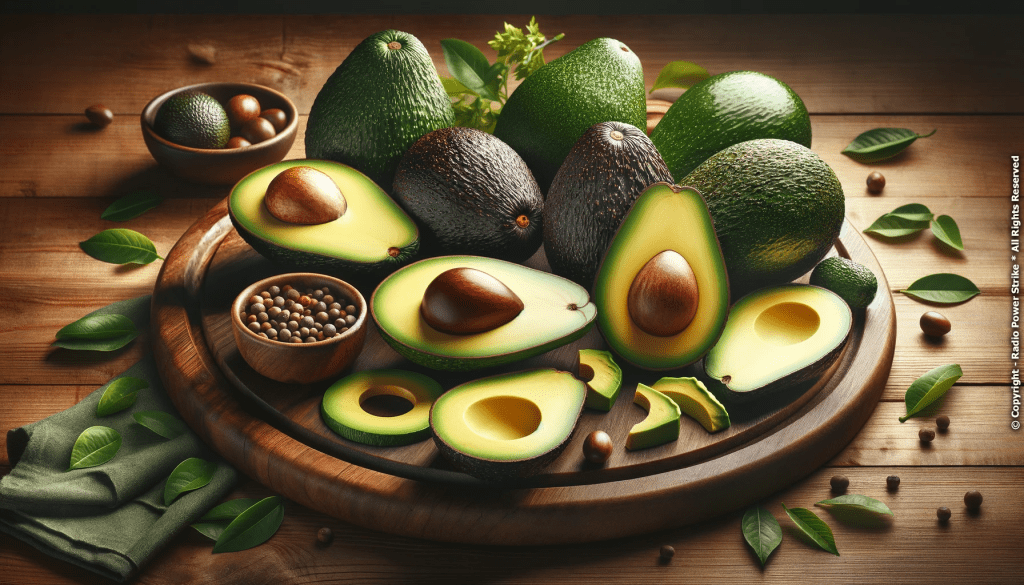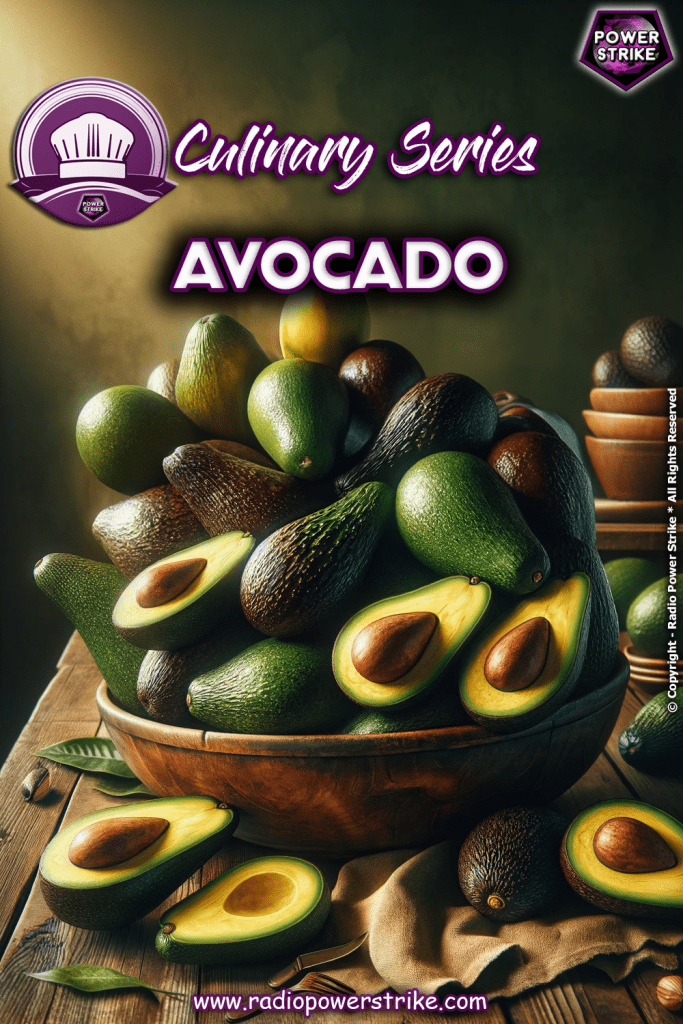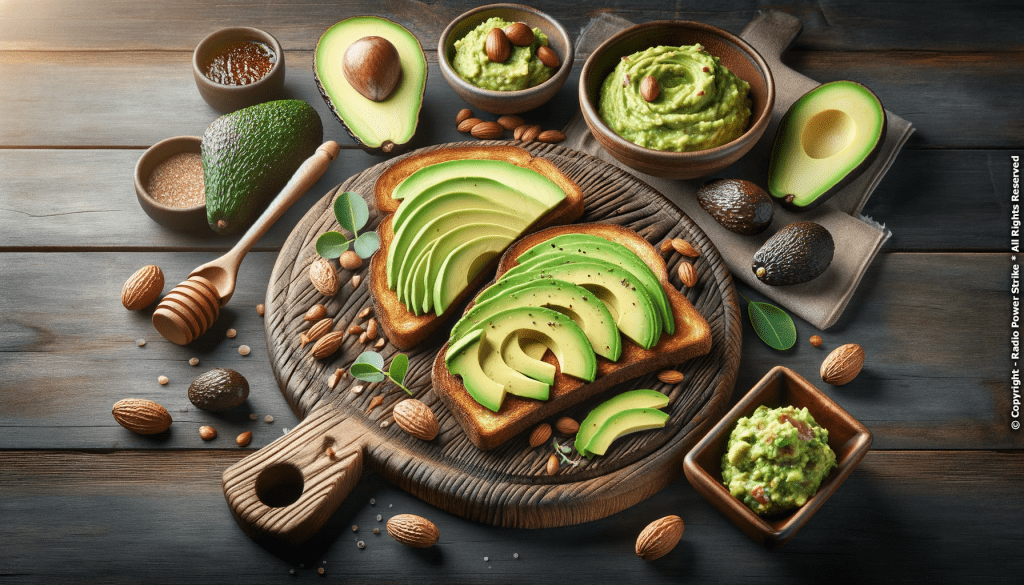
Avocados have surged in popularity due to their rich flavor and impressive nutritional profile. Whether in salads, on toast, or as guacamole, avocados are a versatile and healthy addition to various dishes.

Origin
Avocados are native to south-central Mexico and have been cultivated since as early as 500 BC. They were highly valued by ancient civilizations like the Aztecs and Mayans for their rich taste and nutritional benefits.
The Spanish conquistadors discovered avocados in the 16th century, and from there, the fruit spread to other parts of the world. Today, avocados are grown in many countries, with Mexico, the Dominican Republic, and Peru being the leading producers.
The global demand for avocados has been steadily increasing, making them a staple in households and menus around the world. Their creamy texture and unique flavor have made them a favorite among food enthusiasts and health-conscious individuals alike.
Varieties
There are hundreds of avocado varieties, with the Hass avocado being the most popular. It accounts for about 80% of all avocados consumed worldwide due to its creamy texture and rich flavor.
Other notable varieties include the Fuerte, which is a cross between the Mexican and Guatemalan species. The Fuerte is pear-shaped and has a smoother, medium-thick skin. The Bacon avocado is another variety, known for its thin skin and subtle flavor.
Each variety has its unique taste and texture, making avocados versatile for different culinary uses. From salads and sandwiches to smoothies and desserts, there’s an avocado variety suitable for every dish and palate.
Properties
Avocados are a nutrient-dense fruit, providing a rich source of monounsaturated fats, which are heart-healthy fats. They also contain more potassium than bananas, supporting nerve function and muscle health.
The fruit is also rich in folate, which is essential for normal cellular function and tissue growth, making it a great choice for pregnant women. Avocados also offer a good dose of vitamins E, K, and C, antioxidants that support immune function and skin health.
In addition to their vitamin content, avocados provide phytochemicals like beta-sitosterol and glutathione, which have been studied for their potential cancer-fighting properties. The high fiber content in avocados aids in digestion and helps regulate blood sugar levels.
Benefits
Avocados offer numerous health benefits due to their rich nutritional profile. The monounsaturated fats in avocados can help reduce bad cholesterol levels, potentially decreasing the risk of heart disease.
The high fiber content in avocados not only aids digestion but also helps in weight management by promoting a feeling of fullness. The folate in avocados is crucial for pregnant women as it helps in the development of the fetus’s brain and spine.
Consuming avocados can also support vision health due to the presence of lutein and zeaxanthin, antioxidants that are beneficial for the eyes. The anti-inflammatory properties of avocados can also help reduce the risk of chronic diseases like arthritis.
Nutritional Value

A serving of avocado (about 50 grams or one-third of a medium avocado) provides 80 calories, 8 grams of fat, and 1 gram of protein. It also delivers 7% of the Daily Value (DV) for vitamin E, 6% for vitamin C, and 4% for vitamin K.
Avocados also provide 10% of the DV for folate and 6% for dietary fiber. The majority of the fat in avocados is monounsaturated fat, which is a healthy type of fat that can help improve cholesterol levels.
With zero cholesterol, zero sodium, and low saturated fat, avocados are a heart-healthy choice that can fit into various dietary plans, from keto to vegan.
Storage and Consumption Tips
Selecting Avocados
Choose avocados that are slightly soft but without dark sunken spots or cracks. If you plan to use them in a few days, select firmer avocados.
Ripening Process
To ripen avocados quickly, place them in a paper bag with an apple or banana. The ethylene gas from these fruits will speed up the ripening process.
Storing Cut Avocados
To store a cut avocado, leave the pit in the unused portion, wrap it tightly in plastic wrap, and refrigerate. Use within one or two days.
Freezing Avocados
You can freeze avocados by removing the pit and skin and then pureeing the flesh with a bit of lemon or lime juice. Store the puree in an airtight container in the freezer.
Using Avocado
Avocado can be sliced, diced, or mashed depending on your recipe. For salads or sandwiches, consider using slices or cubes, while mashed avocado is perfect for guacamole or toast.
Fun Facts
Ancient Superfood
Avocados have been consumed for thousands of years and were a favorite among ancient civilizations due to their rich flavor and nutritional benefits.
Symbol of Love
In Aztec culture, avocados were believed to possess aphrodisiac qualities and were often associated with fertility and love.
Avocado Tree
An avocado tree can produce up to 400 avocados annually. These trees can live for many decades, providing a generous supply of this nutritious fruit.
Largest Producer
Mexico is the world’s largest producer of avocados, contributing over 45% of the international avocado market.
Avocado Day
National Avocado Day is celebrated on July 31st, highlighting the importance and popularity of this incredible superfood.

Comments are closed, but trackbacks and pingbacks are open.